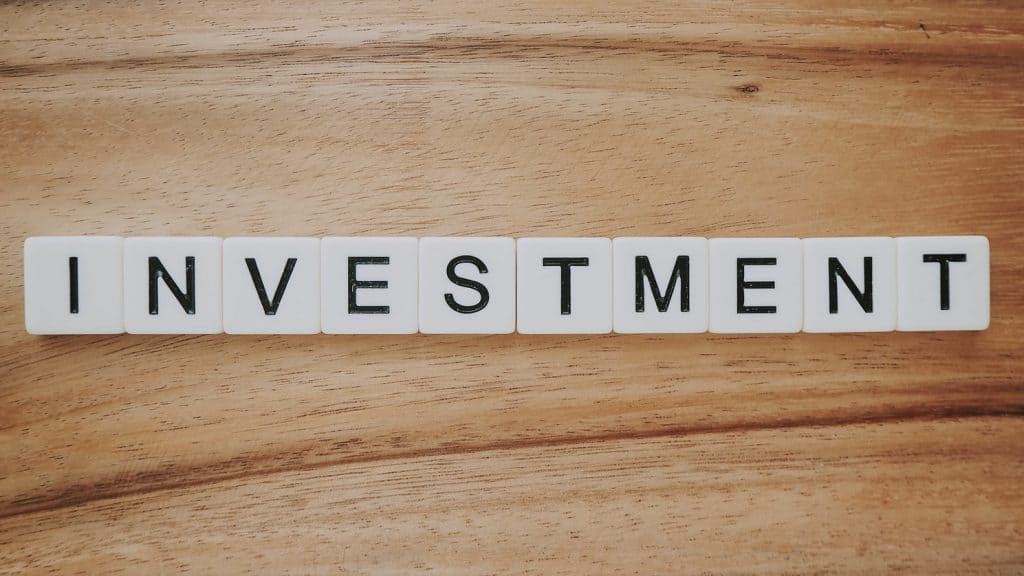I’ve spent the last 30 years of my life trying to help beginners learn to invest in the stock market.
My main message is this:
- Stop thinking about beginning to invest in stocks, stop talking about it, and just start investing now. The sooner you get started, the better off you will be.
- Start educating yourself. It’s easier than you think. There are plenty of free resources to help you get started (see my list of 10 items below).
- Don’t get stock tips from your friends and don’t chase rumors. Get your stock picks from a proven source (see #9 below).
- Develop a systematic plan of creating a savings/emergency account, paying off high interest rate credit cards, and investing in a fixed amount in the market each month.
- STICK TO THE PLAN!
About Me
After getting my Masters degree from Georgia Tech in 1989, I developed the first virtual trading platform specifically for college students. That platform allowed beginner investors (ie, college students taking their first Investments class) to have a virtual portfolio of $100,000 in cash that allowed them to pretend to buy stocks, bonds, and mutual funds.
Since then, I have spoken to thousands of teachers, professors, and students about how to invest for beginners. Creating several websites to help high school students, college students, and the general public learn how to be an investor.
I have read many “stock market for beginner” books, reviewed countless stock market newsletters and stock picking software programs, and I’ve had dozens of different brokerage accounts as I constantly, almost obsessively, try to find the best products, services, and advice for beginner investors.
Here is Proof The American People Need Help Beginning to Invest
As the stock market continues to reach new highs here in early 2021, I was greatly disappointed to read the latest Federal Reserve’s Survey of Consumer Finances that discussed family income, net worth, credit use, and other personal finance issues.
The bottom line was this: In spite of the economy growing at 2.5% from 2016 to 2019, unemployment falling from 5.0% to 3.8%, and median family income rising 5%, Americans continue to make very bad mistakes about their personal finances, their savings and investing, and their retirement planning.
This is very disturbing for those of us in the financial education sector.
Come on people! It’s easier than you think to take charge of your finances and start building your net worth!

Why You Need to Begin Investing Sooner than Later
I’m going to give you 10 easy steps, but before I do, here are some more data points from what the Federal Reserve Survey found:
- Less than 40% of families in the bottom half of the income distribution were in a retirement plan
- The average consumer credit card interest rate INCREASED from 12.3% to 15.1%
- The Median Income based on education level continues to prove the value of education:
- No high school diploma, median income was $31k
- High school diploma, median income was $46k
- Some college, median income was $51k
- College degree, median income was $96k
- The Median Net Worth by age continues to show lack of savings and investing plans
- Less than 35 years old, average net worth was $14k
- 35-44 years old, average net worth was $91k
- 45-54 years old, average net worth was $169k
- 55-64 years old, average net worth was $213k
- 65-74 years old, average net worth was $266k
- and 75+years old it was $255k
- Only 59% of families reported that they saved money in 2019.
- Only 53% of families report owning stocks either directly or in retirement accounts.

Ask Yourself These Questions:
- Are YOUR finances on track?
- Are YOU above average?
- Are YOU saving money each year?
- Is YOUR net worth growing each year?
It’s nice to have a benchmark to know if you’re on track or “average.” But when it comes to saving and investing, it’s always better to be above average.
Another stat from that Federal Reserve Survey you must know is this: Of those families that are in the top 10% of wage earners, over 93% invest in the stock market; and those families have a average net worth of over $1.5 million.
So what do the top 10% of earners know that the rest of us don’t? The stock market is a great place to invest your savings.
And this is what I have spent the last 30 years of my life trying to teach people. The average return of the stock market is 8-12% a year, which is far better than bonds, gold, and real estate. See this article at Seeking Alpha, the source for the following chart, that shows the average return of 10.70% for the last 45 years.

The other thing they know is that the sooner you start investing, the faster your money will grow!
The conclusion I reach time and time again is that systematic saving and investing in the stock market is the best way to build wealth. Over the last 100 years, investing in the stock market beats all of the usual investments of real estate, bonds, gold, CDs, etc.
10 Beginner Investing Steps to Success
So if you are a beginner investor, here are the steps you need to take to start investing in the stock market (the right way) and build your net worth:
- Start saving money each paycheck.
- Aim for 10% but be happy if you can save 5%.
- If all of your paycheck gets direct deposited into you checking account, then open a savings account and have 5-10% deposited there so you’re forced to live on your checking account funds.
- If your employer offers a retirement plan, then TAKE it!
- Always know your credit score and check your credit report frequently.
- Incorrect items on your credit report can cost you money from the interest rate banks and credit card companies charge you.
- Pay off high interest loans and credit cards.
- Practice trading in the stock market.
- While you’re starting to save cash, register for a free $100,000 VIRTUAL practice stock market account
- Get experience and devise profitable strategies before you start using REAL money
- Sign up for FREE, informative financial newsletters.
- Here’s a link to our favorite free beginner stock newsletter
- Learn how the stock markets work and stay informed on business and economic news by using “filters” like these to zero in on useful information
- Sign up for free stock market courses.
- This one was just ranked one of the top free stock market courses by CNBC: a free online beginner stock market course like Investing101.net
- See if Coursera is worth it and can help you advance your investing and business knowledge through their paid and free courses as well.
- Open a stock brokerage account that doesn’t charge commission and get ready to invest.
- Once you’ve saved 3 months of your income in your savings account, it’s time to open a brokerage account.
- For beginner investors, we recommend Robinhood because it is easy to use, it’s free, and they don’t charge commission. Also, see how you can get free stock from Robinhoodworth up to $250 when you open an account.
- It’s used by over 10,000,000 investors and they give you a free stock (up to $250) when you open an account, and then again when you refer friends.
- Pick the best stocks and beat the market!
- You can do it if you get the right stocks. Here are our recommendations:
- Read this Motley Fool Review. Their stock picks have consistently beat the market, which is always ayou goal.
- Read this Best Stock Newsletters of the top 10 stock newsletters and find the one that is right for you.
- You can do it if you get the right stocks. Here are our recommendations:
- Stick to this plan!
- Keep learning and keep investing each month
- As your income grows each year, increase your monthly investing amount proportionately
We are experienced users of dozens of stock trading platforms. We stay up to date on these platforms' service offerings, subscription fees, trade commissions, and welcome bonuses. The brokerages listed below are for U.S.-based investors, and are ranked in order of overall value received after taking advantage of their sign-up and/or referral offers. $3 monthly 10k in assets Growth $3; + $9 Month Bronze $3; Silver $6; Gold $12 a monthThe Best U.S. Brokerages as of June 30, 2025
Ranking of Top U.S. Stock Brokerages Based on Fees, Features, and Sign-Up Bonuses
Rank
Brokerage
Fees
Features
Sign-Up Bonus
Read Our Review
1.
 Robinhood
Robinhood$0
✅ U.S. stocks, ETFs, options, and cryptos
✅ Now 23 million users
✅ Cash mgt account and credit card
Free stock up to $200 with new account, plus up to $1,500 more in free stock from referrals
Robinhood Review
2.
Moomoo
$0
✅ Free Level 2 Nasdaq quotes
✅ Access to U.S. and Hong Kong markets
✅ Educational tools60 free stocks with $5k deposit; or 25 free stocks with $2k deposit
Moomoo Review
3.
Interactive Brokers
$0
✅ Access 150+ global stock exchanges
✅ IBKR Lite & Pro tiers for all
✅ SmartRouting™ and deep analyticsRefer a Friend and Get $200
Interactive Brokers Review
4.
Robinhood Gold
$5
✅ 4% APY on cash
✅ 3% IRA match
✅ Level II data
✅ No interest on first $1,000 of margin Save with Annual Fee
Robinhood Gold Review
5.
M1 Finance
✅ Automated investing “Pies”
✅ Banking & low-interest loans
✅ No trading fees with scheduled trades$75-$500 Tiered Sign-up bonus
M1 Finance Review
6.
Webull
$0
✅ Extended-hours trading
✅ Great charts and screeners
✅ Commission-free options trading$10 and a 30-day complimentary subscription to Webull premium;
$200-$30,0000 Tiered Sign up bonusWebull Review
7.
Public
$0
✅ Fractional shares
✅ No payment for order flow model
✅ “Alpha” tool with earnings calls$100-$10,000 Tiered Cash Account Transfer Bonus
Public Review
8.
Composer
$32 a month
✅ Invest in automated strategies
✅ Build custom strategies easily
✅ IRAs$49 per successful referral with no limit on the number of referrals
Composer Review
9.
Stash
✅ Stock-Back® debit card rewards in fractional shares
✅ Auto-invest and budgeting tools
✅ Curated theme portfolios$5 when you invest $5
Stash Review
10.
Acorns
✅ Automated investing portfolios
✅ ESG curated portfolios
✅ Acorns Early Invest for Kids' AccountsGet a $20 bonus when you start saving & investing
Acorns Review
11.
Etoro
$0
✅ CopyTrading™ to follow top traders
✅ Trade U.S. stocks, ETFs, and crypto
✅ Trades with themed portfolios$10 Crypto Sign-Up Bonus
Etoro Review
12.
Cash App
$0
✅ U.S. stocks and bitcoin; $1 minimum
✅ Peer-to-peer payments
✅ Beginner-friendly financial ecosystemUp to $200 in free overdraft coverage and earn 4% on cash
Cash App Review
Fees, features, sign-up bonuses, and referral bonuses are accurate as of May 31, 2025. All information listed above is subject to change.
